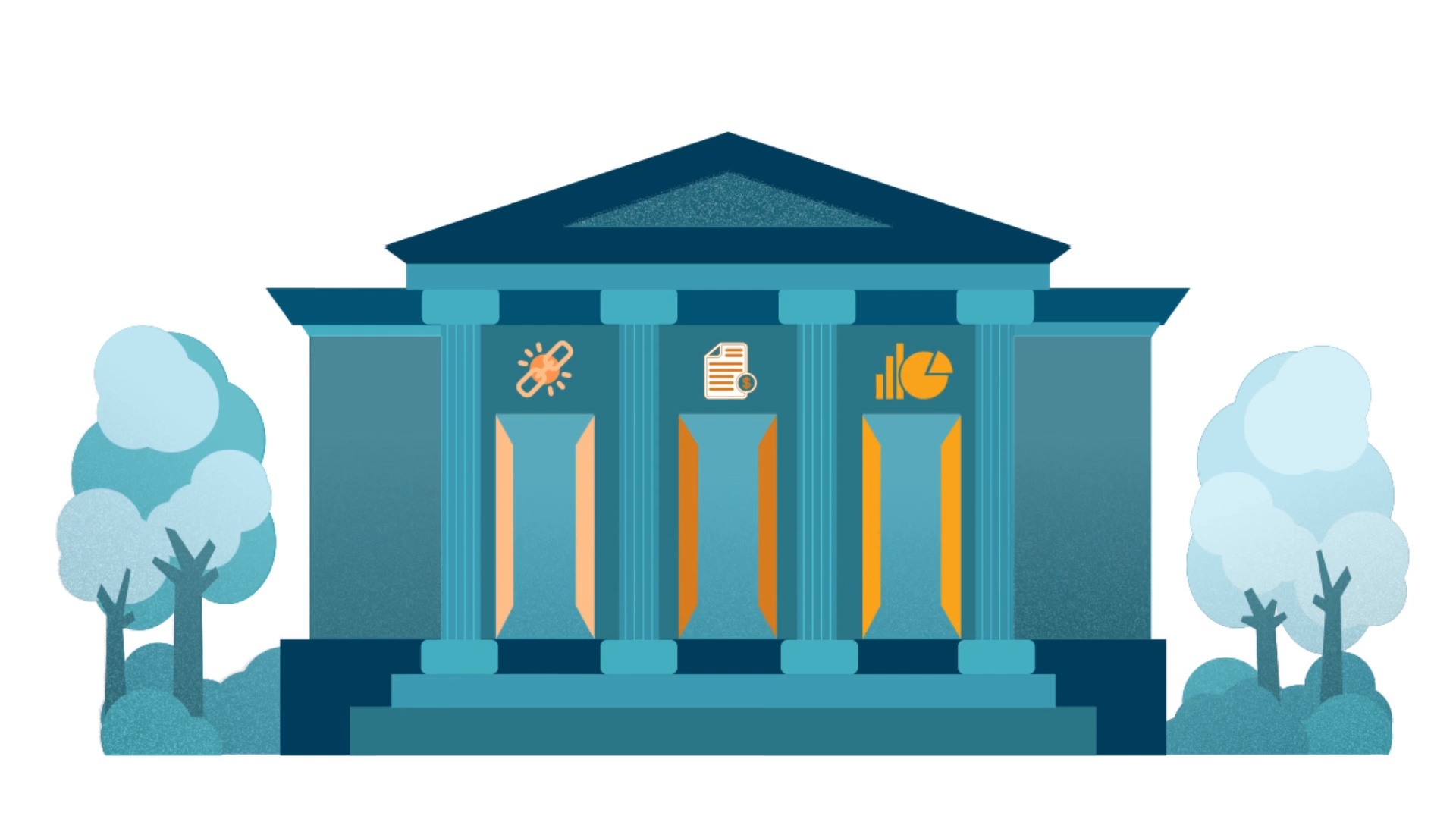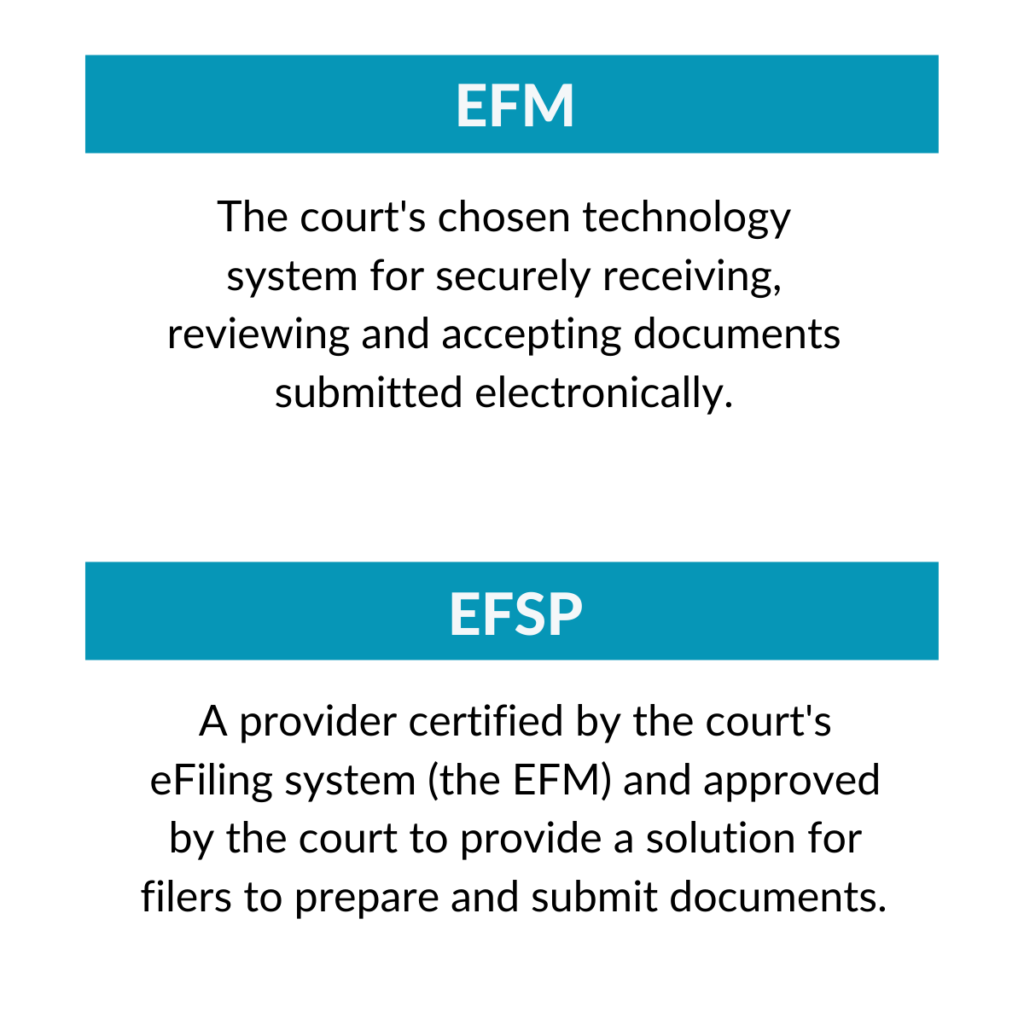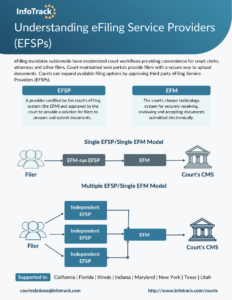Join the conversation about the future of eFiling
See how allowing multiple eFiling service providers helps both filers and the courts achieve business and technology goals.

The future of eFiling
eFiling mandates nationwide have modernized court workflows to permit 24/7 document submission and electronic payments. Although court-maintained web portals improve convenience, they continue to fall short of addressing all the needs and requirements of each type of court clerk, attorney, and filer.
Courts can expand available filing options by approving third-party eFiling Service Providers (EFSPs).
The Electronic Court Filing standard provides standardized exchange methods that allow systems or entities to exchange eFiling data. The standard requires two primary components: an Electronic Service Provider or EFSP and an Electronic Filing Manager or EFM.
How it works



How to get started
Step 1: Authorize
Update eFiling policy to permit third party eFiling service providers to become certified in your state or jurisdiction.
Step 2: Certify
Instruct electronic filing manager (EFM) to implement certification process for electronic filing service providers.
Step 3: Launch
Announce availability of third-party providers to filing community.
Frequently asked questions
An EFSP is a provider that has been certified by the court’s eFiling system, an Electronic Filing Manager(EFM), and approved by the court to provide a solution for filers to prepare and submit documents. Courts may approve any number of EFSPs.
EFSPs tailor their solution to the needs of different categories of attorneys and other filers. InfoTrack serves law firms, legal aid organizations as well as self-represented litigants.
A system for receiving, reviewing and accepting documents submitted electronically to the court.
EFSPs do not replace the court’s EFM. EFSPs integrate with the EFM and adhere to certification standards and court policy for eFiling. Filings from EFSPs are indistinguishable from those initiated via the court’s web portal.
In addition to eFiling services, EFSPs provide court filers with optional services including:
- physical and electronic service of process
- delivery of courtesy copies and physical filings
- integrated eFiling within legal practice management systems
- document syncing with the court record
- automatic accounting of court fees
- streamline billing with extended payment terms
- enhanced reporting
There is no cost to the court to permit EFSPs. EFSPs will collect and transmit court fees as required. Filers may purchase optional services from the EFSP.
EFSPs support the filers that chose to use their services. InfoTrack’s users receive 24/7 account setup and filing assistance.
California, Florida, Illinois, Indiana, Maryland, New York, Utah and Texas currently support EFSPs.
